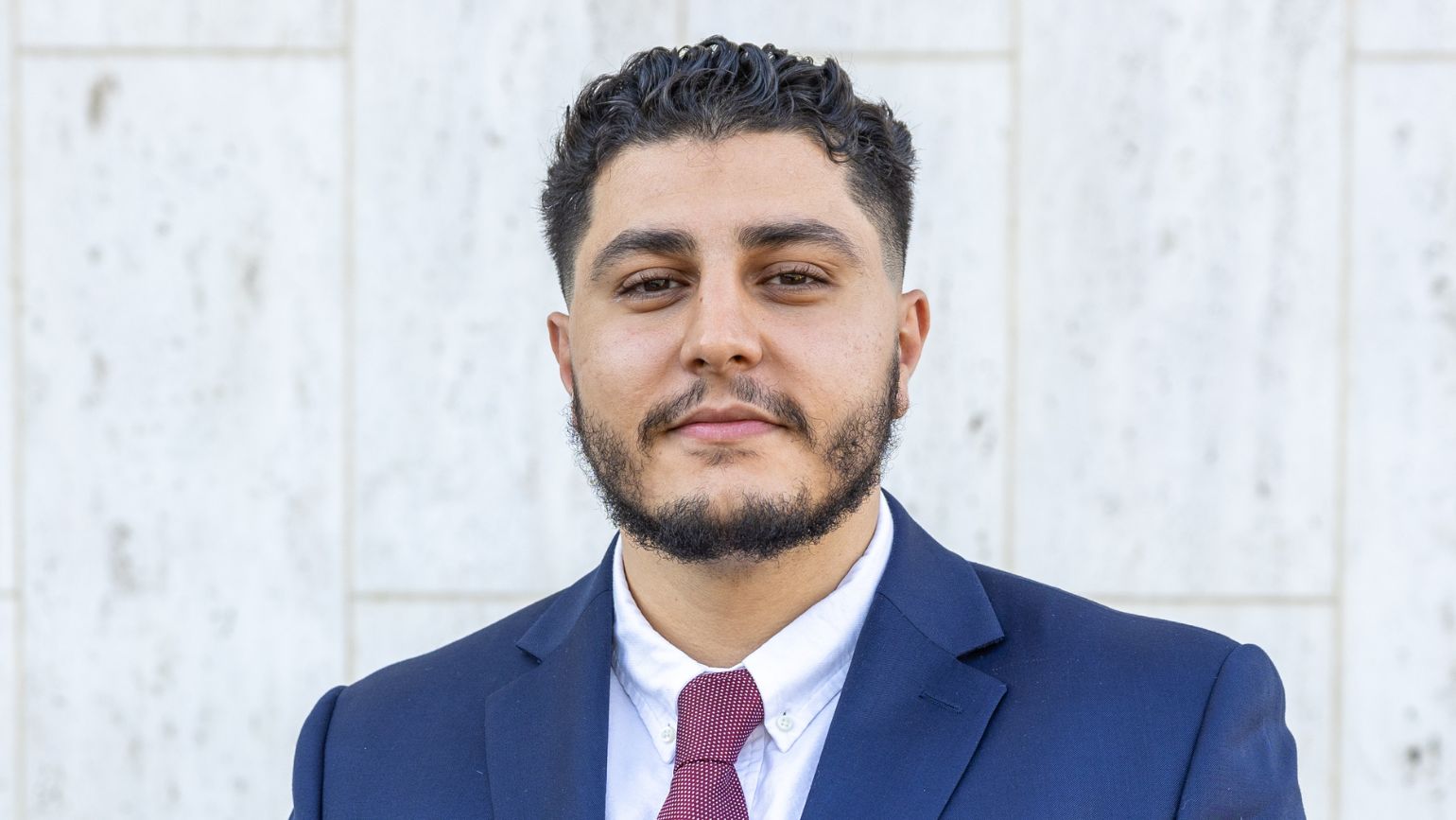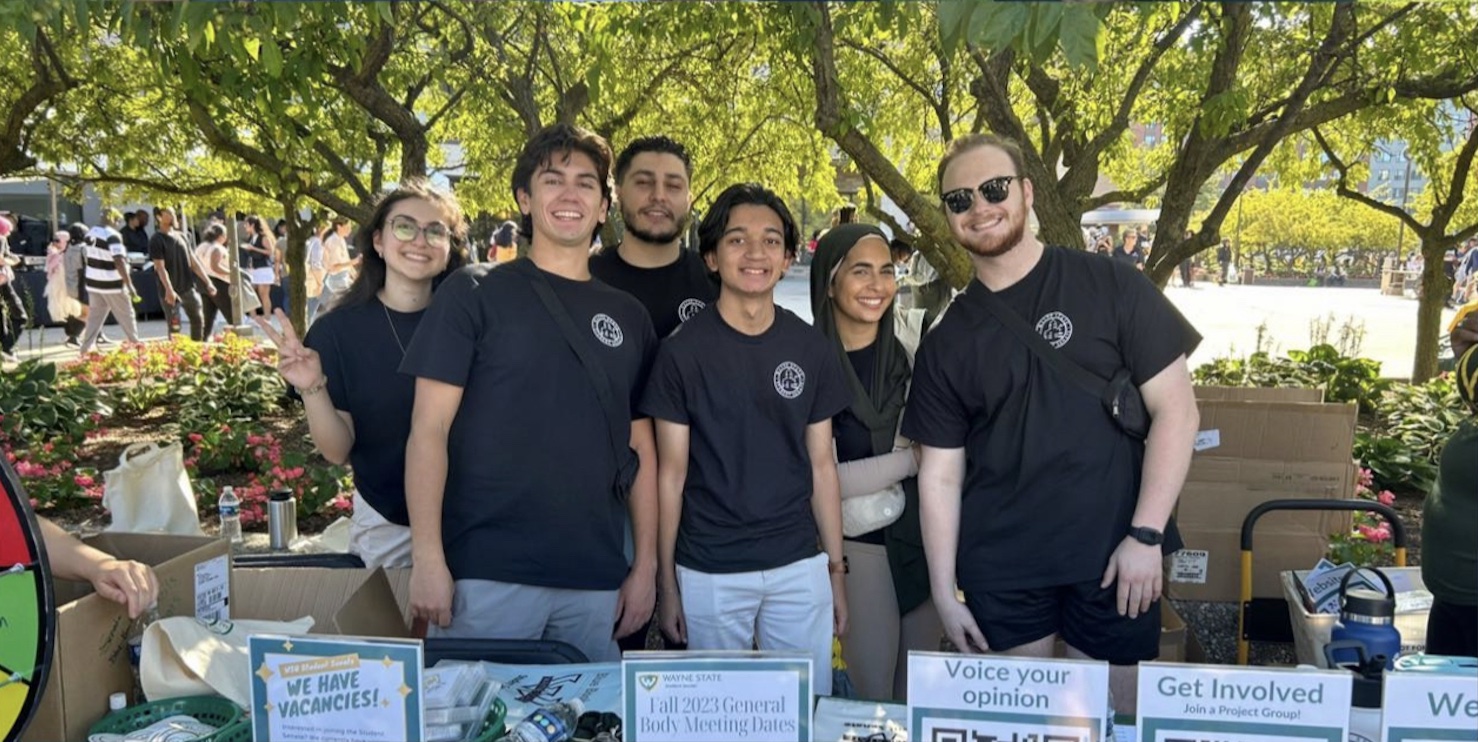Student Senator Mohamed Dabaja advocates for inclusivity on campus

Mohamed Dabaja knew early on that college was in his future.
“I’m a first-generation college student,” he said. “My parents immigrated to Detroit from Lebanon in the ‘90s with $5 to their name. Their determination and drive to raise and support four children despite the challenges truly inspired my educational journey.”
Dabaja remembers the long hours his father put in as a dishwasher at a Big Boy restaurant while his mother supported the kids at home.
"My parents always dreamed of attending college but never got the opportunity. They worked diligently to ensure we could have that chance instead,” Dabaja said.
After high school, he decided on Henry Ford College to save money while completing gen ed requirements. He took advantage of the Michigan Transfer Agreement, and after two years, transferred 60 credits to Wayne State University where he completed a bachelor’s in biology with a minor in nutrition.
“I always had a fascination with studying animals. As a kid I had pet parakeets, and I found it fascinating how they were able to communicate and interact with the environment. I always wanted to understand why certain things work the way they do,” he said.
“During my undergrad at WSU, I had the opportunity to conduct research at the WSU medical school where I studied retinal diseases.”
The work was funded by a fellowship granted by the WSU Undergraduate Research Opportunities Program (UROP). Dabaja went on to present his preliminary research at the 2021 National Conference of Undergraduate Research.
“I developed a great interest in research and later applied to the biological sciences Ph.D. program. Now, I study how the environment affects fertility. So things such as diet affecting fertility and the nervous system.”
His research project "Sensory neurons and insulin signaling modulate oogenesis and fertilization in C. elegans" took first place in poster presentations at the Graduate Research Symposium in March.
Paying it forward
In looking back on his path to higher education, Dabaja said it was important for him to help other students access the knowledge and resources that propelled him forward.
He found such an opportunity with the WSU Student Senate. Elected in 2022 as a graduate student representative, Dabaja was reelected this fall and promoted to the executive board as the director of student services.

“I’m committed to ensuring everyone on campus has an inclusive environment.”
His current role allows him to do just that.
He is working to expand the number of reflection rooms on campus; silent spaces where one can meditate, pray, or ponder, he said. Currently, the only designated reflection room is in the Student Center. Another will open inside the renovated State Hall later this semester. And Dabaja hopes to install others in Old Main, Manoogian, and Science Hall in the near future.
Other initiatives Dabaja leads include expanding the number of lactation rooms on campus and the number of free software applications available for student use through the WSU Libraries.
In efforts to make learning software more affordable to students, the Student Senate recently sent out a survey to the student community to gauge what kind of tech they use in classes and would like to see at the library.
“There may be additional tools and applications that are essential to a student’s academic and personal projects but financially out of reach.”
A concerted effort
Dabaja’s efforts extend well beyond the Student Senate.
He is the acting student representative on the Graduate Council and Academic Senate of Research. He is also working closely with Graduate Student Association (GSA) President Nouran Yonis to jumpstart the association he expects to launch later this fall.
“Currently, we’re looking for more members and trying to find representatives from each school and college. The big mission of the GSA is to unite all the graduate students on campus.”
The association will be the first of its kind at WSU.
“Imagine how powerful we can be once we’re able to unite all the graduate students. If a student ever needs anything, they will have a whole team to back them up.”
Dabaja sees the GSA as an outlet for graduate students across disciplines to get out of the lab and participate in extracurriculars, meet others, bolster their mental health, and experience an all-around safe space on campus.
“I want to make sure all students feel empowered. I don’t want anyone to feel left out.”
Have questions for Mohamed Dabaja? Reach out to him at gk1828@wayne.edu.